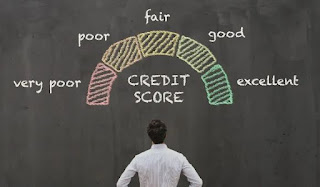5 Tips Debt Relief Strategies
Several occasions I'm curious about the credit system that influenced the world economy 200 years ago. I don't see how credit card salesman can drive more people into debt and bankruptcy if the goal of starting a business is to 'assist' someone to satisfy their needs and wants.
Clearly, the vast majority of people are unaware of the increasingly complex (and complicated) terms and conditions that accompany the cards they apply for, how they benefit the bank rather than the applicant, and how the ubiquitous card is best used.
The advanced world's 'cashlessness' undoubtedly creates illusions in the minds of people afflicted by materialism, who find it all too simple to buy anything, anyplace, with a flash of the card, without recognizing the interest paid to the bank each time a purchase is made.
Before you can get the numbers correct, you must first get your personal spending principles and habits perfect, and only then will you achieve self-awareness and a conservative attitude, which will light up a red warning in your head just before you make a purchase decision.
Here are five pointers to help you get a head start:
1. It isn't how much money you make (or spend) that matters; it is how much money you can keep. This is something I didn't say. It was said by Robert Kiyosaki.
Far too frequently, poor individuals are unable to find happiness within themselves and must rely on other sources, so they either buy to impress others or to get a 'good' indulgent sensation from acquiring new items. If the new product does not serve a purpose or even perform a meaningful function, it is a waste of money.
2. Get rid of your credit card and replace it with a debit card. A debit card works similarly to an ATM card in that it deducts funds directly from your account when you make a transaction and may be used anywhere in the world.
The credit card allows you to BORROW money from your bank to make a very costly purchase, as long as you pay back the loan PLUS the interest in monthly installments.
Your credit scores will improve based on your track record if you have always met your credit commitments, leading to better protection and concessions.
However, unless you frequently deal with major transactions and are familiar with your spending cycle, you are better off simplifying your life by understanding where YOUR money—not the bank's—goes while it isn't in your account.
3. Be aware of your financial situation. Plan and assess your savings and expenses on a monthly basis. How vital and regular are those products that you must purchase using your card?
Why is it a good investment for you and others, such as your family? What else can be slashed? Sometimes you have to accept that your financial decisions have an impact on your personal family, and this is an important issue to keep in mind.
4. Only use your card in an emergency. I don't know how many times my elders have advised me, but don't rebel just for the sake of rebelling.
5. If you're on a limited budget, you should address the issue as quickly as possible. Discuss the finer points with your immediate family and financial advisor, and they will be sure to assist rather than worsen your condition, because if it doesn't affect you, it will affect them and your connections.
The debt problem is not only a personal one, but one that affects people all throughout the world. It's a disease that infects people who become too concerned when they see the excessive rise in the expense of living everywhere they go, whether it's in New York or Kuala Lumpur, and so they borrow to stick their neck out.' Wrong thinking creates a vicious loop that feeds on itself, bringing you closer than ever to losing everything.
When the bank or creditors start knocking on your door, you finally wake up from your debt situation, and you don't want that to happen. Stop being swayed by what is going on around you and instead assess your financial situation and well-being.
You have the option of not going 'deeper' with your bank than necessary. It's time to be content with what you have. If you are grateful for what you have now and make the most of what you have, you will find a better purpose for your scissors than cutting up credit cards.

Post a Comment for " 5 Tips Debt Relief Strategies"